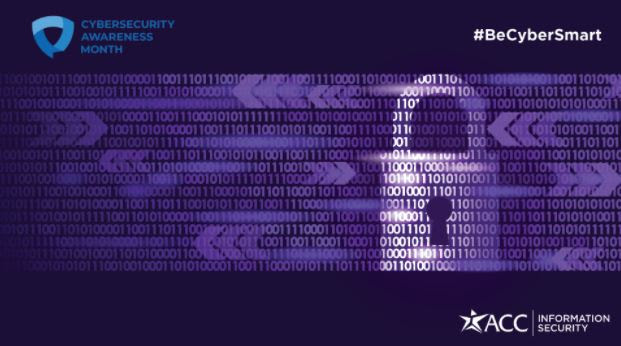A Message From IT
You probably use personal identification numbers (PINs) and passwords or passphrases on a daily basis — when getting money from an ATM or using your debit card in a store, to logging in to your work computer, personal email, or into an online retailer. Tracking all the different numbers, letters, and word combinations may be frustrating. These different types of protections are essential because hackers represent a real threat to your information. Often, an attack is not specifically about your account but about using access to your information to launch a more powerful attack.
Passwords are often the only barrier between you and your personal information. There are several programs attackers can use to help guess or “crack” passwords. However, choosing strong passwords and keeping them confidential can make it more difficult for others to access your information. That’s why ACC Information Security reiterates the importance of creating and managing strong passwords.
Here are some tips to come up with unbreakable passwords:
Avoid common mistakes. Most people use passwords that are based on personal information and are easy to remember. However, that also makes it easier for an attacker to crack them.
Length and complexity. Consider making a long, unique PASSPHRASE. Research has shown that length trumps complexity. A strong passphrase is a sentence that is at least 12 characters long.
Dos and don’ts. Once you’ve come up with a strong, memorable password, it’s tempting to reuse it — don’t! Reusing a password, even a strong one, endangers your accounts just as much as using a weak password. Use the following techniques to develop unique passwords for each of your accounts:
- DO use different passwords on different systems and accounts. Please DON’T share them on the phone, in texts, or by email.
- DO use the longest password or passphrase permissible by each password system and develop mnemonics to remember complex passwords.
- DO use a good mix of characters. A strong password consists of a variety: upper- and lower-case letters, numbers, and special symbols. That makes it less predictable and thus harder to crack.
- DON’T use passwords that are based on personal information that can be easily accessed or guessed.
- DON’T use words that can be found in any dictionary of any language.
- DO change your passwords frequently. The more important the account, the more frequently the password should be changed. Click the link to know how to Change the ACC Network Domain Password.
Click the links to follow the ACC Information Security Password Policy and Construction Standard in creating your passwords and passphrases.
#BeCyberSmart and don’t forget security basics:
- Keep your operating system, browser, and other software up to date.
- Use and maintain antivirus software and a firewall.
- Do regular backups of your data.
- Regularly scan your computer for spyware.
- Use caution with email attachments and untrusted links.
- Watch for suspicious activity on your accounts.

